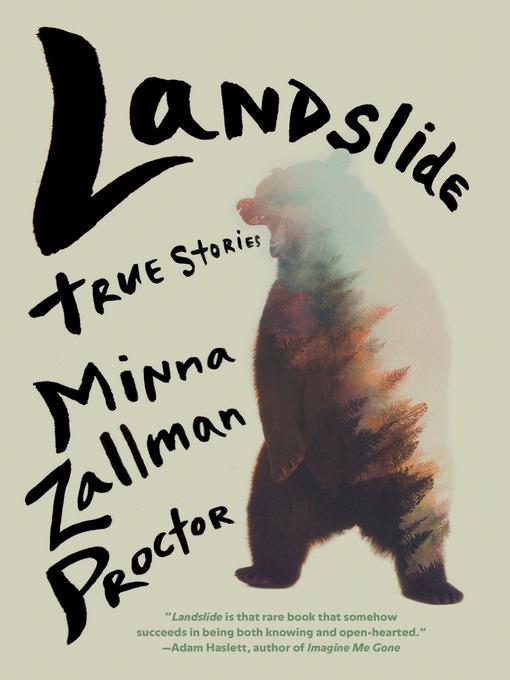
Landslide
True Stories
کتاب های مرتبط
- اطلاعات
- نقد و بررسی
- دیدگاه کاربران
نقد و بررسی

May 29, 2017
In this collection of interrelated personal essays, translator and critic Proctor (Do You Hear What I Hear?) explores memory, loss, and family through her relationship with her deceased mother and her experiences raising children after a divorce. She recalls her mother’s decade-long battle with cancer and reflects on the intangible losses that death brings—for example, the forgotten details of stories that died with their teller. The book’s central narrative concerns these stories and their inaccuracies. The author remembers being hurt that her mother did not attend her high school graduation, but later learned that her mother did attend and stayed hidden out of fear that Proctor would be embarrassed by her presence. Past and present frequently collide, as when Proctor compares one of her son’s emotional outbursts (“I know that he is really crying because I divorced his father”) to her own adolescent rebellion, or when she realizes that she relates more to her mother than to her younger self. The daughter of a devout Episcopalian and a lapsed Jew, Proctor also explores faith and its potential for providing stability in a life unmoored by uncertainty. She has crafted an affecting elegy for a complicated and contradictory mother and an insightful ode to the unknowable. Agent: Rebecca Carter, Janklow & Nesbit (U.K.).

July 15, 2017
Stories matter, memory is tricky, the past permeates us: these and other insights appear continually in a collection of interwoven personal essays.There is no indication that these pieces have been published elsewhere, though an internet search turns up some previous online appearances. Proctor (Creative Writing/Fairleigh Dickinson Univ.; Do You Hear What I Hear? Religious Calling, the Priesthood, and My Father, 2005, etc.), a translator, author, and editor, tells a number of stories, some of which resemble one another in certain ways, others that deal with adolescent foolishness, parents, motherhood, religion, psychotherapy, writing and translating, death and dying. Throughout, the author remains candid about herself--sometimes brutally, painfully so. She discusses her early difficulties in school; her relationships with men, including marriage(s); her times living abroad, where she learned Italian--she's now a translator; her admiration for various writers, including Muriel Spark; her children's sometimes-evocative conversations; and her visits with an astrologer. Proctor's essays sometimes allude to one another in ways--sometimes subtle, sometimes patent--and she is very fond of endings and exits that evoke high emotion in a few words. Her text, as well, is full of pithy, even aphoristic phrases and sentences--e.g., "the perversions of memory"; "It is tricky to talk about shame." In several pieces, the author employs a technique resembling a musical motif: in one essay, she revisits Waiting for Godot several times; in another, an astrologer's observations pop up now and then. Among the most wrenching of her stories, which appears throughout the collection, is that of her mother's losing battle with cancer. The final essay, "The Waiting Earth," which takes readers to a cemetery, features a final sentence that will create a tear in even the driest of eyes. Affecting stories told effectively, with all the complications involved in searching for truth.
COPYRIGHT(2017) Kirkus Reviews, ALL RIGHTS RESERVED.

September 1, 2017
In her first collection of essays, Proctor (Do You Hear What I Hear?, 2005) refuses to be reduced to any one theme. She is by turns hilarious, contemplative, open, and self-deprecating. Though the stories Proctor chooses to tell are fairly ordinaryif moving to Tuscany and becoming a translator count as ordinaryeach essay is instilled with depth, humor, and meaning, in ways that are not always predictable. Proctor's strength lies in her use of what she calls totemic stories: stories where the significance lies not in the events but in the telling, or even the choice to tell. A moment in a doctor's office leads years later to a revelation about her own writer's block; in an essay about an early romantic relationship, Proctor admits that she hasn't figured out the story's significance yet. It's the avoidance of tidy explanations and obvious themes that make Proctor's writing feel so real, and significance, when she chooses to instill it, seem so meaningful. In the end, perhaps the theme is clear. What is Landslide about? Nothing; everything.(Reprinted with permission of Booklist, copyright 2017, American Library Association.)

























دیدگاه کاربران